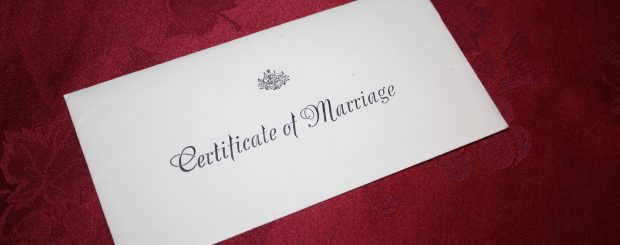Marriage in Dubai – Everything You Need to Know as an Expat
Can I get married in Dubai? Yes, of course you can. So no need to read on, then? Well, I wouldn’t go quite that far. Getting married in Dubai in most cases is no more complicated and involves no more brushes with officialdom and bureaucracy than getting married in your hometown; and yes, there are a few fees that need to be paid as well, but tell me where that isn’t the case.
Then why bother at all?
Why bother with all the fuss of getting married when we can just live together? You might get away with it, and plenty of people do, but all it takes is one jealous or angry person to report you to the authorities and it all gets very messy. In all probability, it won’t end well.
You see, Dubai law (UAE law for that matter) is founded on Sharia Law, the legal system where public and private aspects of life are regulated by the religion of Islam. The only circumstances in which men and women can live together under the same roof are if they are married or members of the same family.
If someone suspects, for whatever motive, that you and your partner with whom you are living are not actually married, and informs the police, the police are required to investigate. Now Dubai isn’t Saudi Arabia: there are no religious police (the Muttaween or Muttawa) going from door to door carrying out spot checks, but as I said, if a complaint is made, the regular police are bound to follow it up.
Produce a marriage certificate that has been registered and endorsed by the Dubai Courts, and the issue stops right there. But even if you are chastely sharing separate rooms in a flat, and are just good friends, if you are members of the opposite sex, it’s still a crime and there will be consequences.
A few years ago, the neighboring Emirate of Sharjah, which is rather more conservative than Dubai, did start a program of spot-checks to find who was actually living in flats and apartments, and there were a few arrests, as you can read here.
This policy petered out fairly quickly and it has never been carried out (to the best of my knowledge) in Dubai, but while Sharia Law prescribes terrible punishments such as floggings and stoning for sexual misdemeanors, getting caught in Dubai would more likely result in fines, hefty legal fees, possible jail, and almost certain deportation.
That means your job is gone and the pot of gold at the end of the Dubai rainbow vanishes with it.
For a whole raft of practical reasons, you’re better off legally married.
For one, your partner will have difficulty getting work and a residence visa. Yes, maybe he/she is highly competent in a sought-after field and can get a visa on his/her own merits. Fine, but there’s the issue of housing: not only do you have to have a job to get a visa, you also have to provide evidence (a tenancy-agreement) of having somewhere to live.
So that means an empty apartment somewhere in Dubai, which a fair proportion of one salary/benefits package is being outlaid on, while you and your significant other play house at his/her place. Do you really want to live with that hanging over yourselves? You can read a lot more about the benefits of being legally married, and the pitfalls of not being wedded here.
Marriage in Dubai – the ceremony
First question: a religious or civil wedding? Obviously, the authorities would prefer it to be the first, but being a modern and tolerant society, they will recognize the second. So if you also want to have a religious service, head for your nearest church or minister and begin making the arrangements.
Other religions are free to operate in the UAE; most have their own websites and many share premises. You can read more about Christianity in the UAE here, but Hindus, Sikhs and Buddhists are equally free to conduct marriage ceremonies according to their own rites in their own places of worship.
There are no Jewish Synagogues in the UAE, but there is no prohibition under law against there being any. Any members of the Jewish religion in the UAE are probably well aware that there is considerable hostility towards the State of Israel and practice their religion very privately and covertly.
There will doubtless be different church laws and practices that you and your partner will need to find out about in consultation with the person who will officiate and celebrate the marriage.
It’s possible to also have a civil marriage in Dubai, carried out on the premises of many foreign embassies. Again, you would need to contact your individual Embassy to find out what documents are required, how long the waiting period is, how many (or how few) people can be there and what the fees are.
You can read a lot more about the technicalities and procedures of getting married in Dubai here, here and here (there’s a great deal of detail in the last one, especially)
Marriage in Dubai – the equally important second part
After the marriage ceremony, you really should tie the last of the legal knots as soon as possible or practicable. This involves registering your marriage through the Dubai Courts.
In the case of either a church marriage or an embassy marriage, this can be done by the church or the embassy for an extra fee – it isn’t a lot: typically about AED 200. And that’s it – you’re done, or as one of the articles linked above says: “Hitched without a hitch!”
It’s a little more difficult if you get married outside the UAE, but want the same legal protection that the above registration gives you. Obviously there will be paperwork from either a church or a registry office wherever you were married, but this will almost certainly need to be officially attested in some way or another to be acceptable to the Dubai Courts.
A marriage ceremony conducted at an Italian Commune Office, for example, by the mayor of the town, can be attested as a genuine document by the Italian Embassy in Abu Dhabi (and if necessary, probably also translated into Arabic) – all for extra fees.
A few final points
If your marriage has been conducted in an unusual manner in an unusual place, getting the documents properly attested is all the more important. A marriage between a Muslim man and a non-Muslim woman does not require the woman to convert to Islam to be valid. On the other hand, a non-Muslim male cannot marry a Muslim woman without conversion.
And finally, what about same-sex marriages and partnerships? This is an absolute non-starter for the foreseeable future; if it’s going to be an issue, then Dubai isn’t really the place for you and your significant other.








